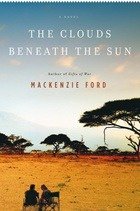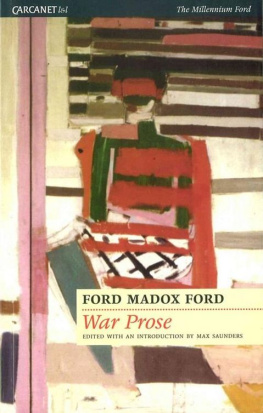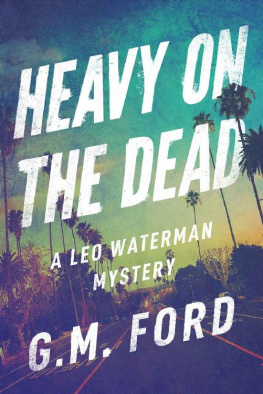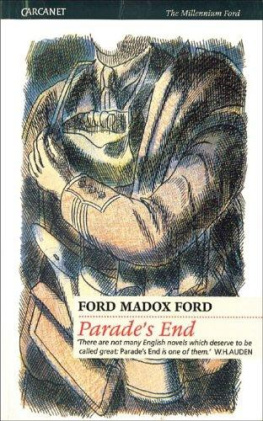Also by Mackenzie Ford
Gifts of War
a cognizant original v5 release october 04 2010
A NOTE ABOUT THE AUTHOR
Mackenzie Ford is the nom de plume of Peter Watson, a well-known and respected historian whose books are published in twenty languages. He was educated at the Universities of Durham, London, and Rome, and his writing has appeared in the New York Times, the Los Angeles Times, and numerous publications in the United Kingdom. From 1997 to 2007 he was a research associate at the McDonald Institute for Archaeological Research at the University of Cambridge.
Postscript
The timing given for the origins of bipedalism is correct for the years in which this book is set. Since 1962, however, the age at which early man first walked upright has been pushed further and further back (possibly to 4.5 million years ago, with the form of early man known as Ardipithecus). For an excellent, accessible introductory account, see Ancestral Passions: The Leakey Family and the Quest for Humankinds Beginnings, by Virginia Morell (Simon and Schuster, 1995), one of the sources I have relied on for period and scientific detail.
Kenya was declared independent in December 1963.
Jack Deacon married Elisabeth Kilibwani in Nairobi in 1964. They had four children. He died in 1972 of testicular cancer.
Natalie Nelson married Peter Jeavons, in the House of Commons Chapel, in 1966. In 1967 she fought a parliamentary by-election for the Chapel St. Leonards constituency in Lincolnshire, winning by a comfortable margin. Three years later she was appointed a junior minister at the Foreign and Commonwealth Office with special responsibility for sub-Saharan Africa.
Christopher Deacons body was never found.
1
THE APOLOGY
The KenyaTanganyika border,
September 1961
T he Land Rover juddered to a halt. Natalie Nelson jolted her head on the side window and was shaken awake. Whats the matter, Mutevu? Why are you stopping? Watch out for that termite mound! Have we got a flat tire? Whats wrong?
Natalie was wearyno, she was drained, exhausted, spent, and this delay was too much. Shed been traveling without sleep now for more than twenty-three hours, since she had left Cambridge sometime yesterday, and she was anxious, longing, desperate, to reach Kihara camp. However primitive the beds might be, however much a relic of empire, however scratchy the horsehair mattresses, shed be asleep in no timejust try stopping her. A two-hour train ride from Cambridge to London, two hours across London to Heathrow, two hours at Heathrow, waiting, thirteen hours in the air, including a two-hour stopover in Cairo, two hours at Nairobi International and more waiting, and then two hours in the smallest, noisiest, most bone-shaking single-engined contraption she had ever seen, which had dropped her out of the sky at the red-clay Kihara airstrip not forty-five minutes ago. Twice already, she had nodded off in the Land Rover, and that took some doing when you were driving over the corrugated volcanic ash that the Serengeti boasted in places.
Elephants, muttered Mutevu Ndekei.
Natalie frowned. For as far as the eye could see, all around them, smooth bone-colored rocks caught the African sun, making the landscape resemble a vast graveyard where ungainly dinosaurs had met their end. Here and there clumps of flat-topped acacia trees threw patches of shade across the shimmering gold-green of the savannah grass that swayed in the breeze. Gazelles grazed in the distance, now and then raising their heads to look for trouble.
But right in front of them, near a massive fig tree, was a small herd of elephants.
She frowned again. Yes, I can see that but theyre not dangerous, are they, elephants? Why dont we just drive round them?
This was Natalies first dig as a fully fledged member of an archaeological teamshe had just turned twenty-eight and her Ph.D. was barely six months old. But she had worked in South Africa as a student and so was not a complete novice in the bush.
One of them is flat on the groundhe or she may be dead.
They both watched as the other elephants moved in closer to the animal that had fallen.
I dont understand, Mutevu. What does it matter if?
Shhh. Elephants can be difficult sometimes if an animal dies, he whispered, pointing to a large she-elephant looping her trunk around a tree and pulling at the branches.
Mutevu, who had been the only person at the strip to meet Nataliethe rest of the team were in Kihara Gorge, excavatingwas as soft-spoken as he was huge, a six-foot-three Maasai, black as night, with tribal cut marks gouged out of his cheeks. He had told her his main job was as camp cook, but he also helped out with the driving.
His enormous fingers found the diminutive ignition key and killed the engine.
Elephants seem to understand deathnot as much as humans do they dont bury their dead in graves, nothing so elaborate, but theyre not like other animals, either, who show no signs of loss.
Mutevu pointed at an old male elephant standing by the fallen animal.
They appear to have a form of griefand will remain by a dead body for days on end, almost as if they are offering comfort, or holding ready to help if the fallen animal should move or show signs of life.
They both watched in silence as most of the herd stood still, stopped eating, and just looked on while the large female this time broke off an entire tree branch, thick with leaves, and carried it in her trunk toward the fallen beast. Then she dropped the branch on the elephant, so that the creature was partially covered.
Thats amazing, said Natalie under her breath.
Are they burying the animalor covering it, to keep it warm? No one knows, said Mutevu softly. But its clearly an emotional time, and to drive through or near a herd when they are in this mood can be dangerous. Well just wait.
Natalie reached for her camera.
For the best part of an hour they watched as the elephants completed what Natalie had to concede looked very like a ritual. Four or five other animals followed the lead of the she-elephant and tore off branches of trees and covered the dead animal. Then, one by one, they moved off, leaving just the solitary male still standing by the corpse.
The only sound was the wind, gently rocking the Land Rover.
When the main herd had all but disappeared across the plain, and the old male was left by himself, Mutevus fingers found the ignition key, he switched on the engine, and the Land Rover rolled forward.
Natalies mind was in a whirl. If elephants experienced grief, did they have any conception of an afterlife? Did that mean they had the rudiments of religion?
She rubbed her eyes with her fingers. She was too tired to face that kind of question just now. But it was the kind of question she liked, the kind of question she had come to Africa for. As an expert on extinct forms of life, she was hoping to make her fair share of discoveries in the coming months. The excavation she was about to join was the most prestigious in her chosen field, and the invitation to become part of the team was a big feather in her cap. So long as she didnt make a fool of herself, and published one or two good papers, a fellowship of her college was now a distinct possibility.
Mutevu slowed the Land Rover to negotiate some dried ruts where a herd of something had churned up the ground. He stretched out his arm and pointed: Bat-eared foxes.
Natalie yawned, smothered it with her hand, and grinned sheepishly. She looked to where Mutevu was indicating, but she couldnt see anything. Her bush eyes were still underdeveloped. The foxes camouflage was just too good for her.












